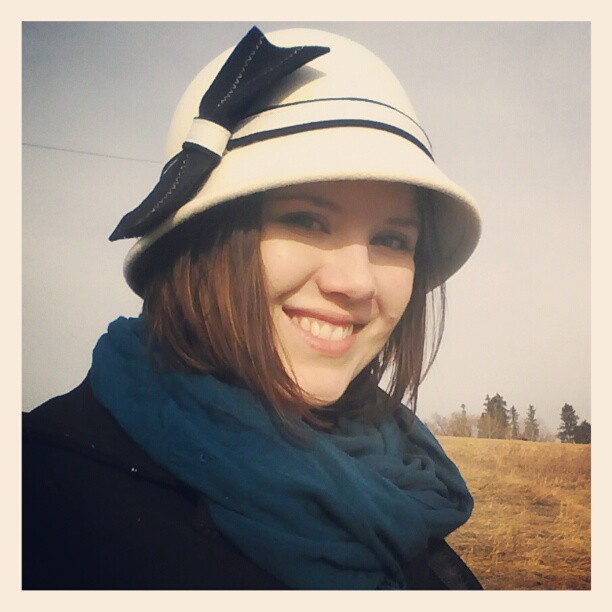Alumni
Related Links
Contact
Anne-Marie Rodger
Senior Development Officer
T. 519-661-2111 Ext. 87322
E. arodger8@uwo.ca
Q&A with Alumni
 Heather Desserud
Heather Desserud
What is your degree?
I have a Bachelor of Arts (Honours) with a specialization in English from the University of Western Ontario.
What is your current job?
My current position is the Digital Information Officer at Enterprise Saint John, a not-for-profit agency that works to promote economic development in the Saint John (New Brunswick) region.
This position encompasses a few different roles. I am responsible for managing all of Enterprise Saint John’s digital assets, which includes their main website (enterprisesj.com), the blog (truegrowthsj.com), and social media. I am also responsible for developing and implementing an organizational communications strategy that aligns our key messages, as well as writing some media releases and other communications support as needed.
Prior to this, I was Social Media Manager at Hockey Canada in Calgary, where I managed the strategy behind the company’s social media use. I have also worked in public affairs and communications in Ottawa.
Do you have any favourite memories from Western?
I made some great friends at Western, and met my partner in a third-year Renaissance literature course there—so I’d say that’s my favourite memory! I also remember Western’s on-campus culture and beautiful architecture fondly.
Do you have a favourite class from your time at Western?
There are too many to choose just one! John Leonard’s fourth-year seminar on Paradise Lost was certainly one of my favourites. I learned a lot from the late Lisa Zeitz’s third-year course on eighteenth-century travel literature. And working with my honours thesis supervisor, M.J. Toswell, was incredibly rewarding.
Did you ever wonder how useful your degree would be? Or did you come into University knowing exactly what you wanted to pursue career-wise?
I started off studying history with the plan of becoming a history professor. Over the course of my degree, I switched to English/literature, focused on medieval studies, and planned to pursue an academic career in medieval language study. It didn’t occur to me to look at careers outside the academy until after graduation, when I realized that I wanted a more hands-on, fast-paced job.
What was your first job after graduating from university?
My first job was working as an assistant to an MP on the 2008 federal election; after losing the seat in the campaign, I went to work for a public affairs firm in Ottawa as a communications consultant.
What elements of your degree allowed you to obtain that job? Were there specific skills that you learned in your time at university that you then highlighted in order to be hired? Are there any skills that you learned throughout your university career that you still use today?
The skills that were—and continue to be—most useful include my writing, research and analytical abilities. It’s not difficult to learn how to write a press release or a journal article, so long as you know how to communicate clearly and effectively, and how to synthesize research into coherent arguments. These are skills that I developed throughout my degree, and that enabled me to get my career started.
Can you suggest any resources (books, websites, journals, etc.) that have additional information on careers in the Arts or are related to the Arts community?
http://www.mediajobsearchcanada.com/ , http://www.workinculture.ca/ and http://canadaartsconnect.com/ all have jobs that relate to arts, communications and related fields. I would also encourage students to consider joining a professional organization in their desired career field such as IABC or CPRS to access their job postings.
Do you have any advice for students who are nearing graduation and are feeling anxious about their career?
Be flexible, and be prepared to take opportunities that you didn’t expect. When I was studying Old English poetry, I couldn’t have imagined meeting World Junior players at Hockey Canada or working the red carpet at the Genie Awards in Ottawa. My jobs came about because I took chances, tried new things and thought about what I could offer outside of the specific subjects I studied. There may not be many jobs out there in medieval literature, but there are thousands of employers looking for people with strong writing and research skills.
There is a heavy weight placed on young students to graduate from university with a career, not an education. Do you think that the value of an education has been replaced with the necessity of employability?
I think that is a danger, yes. Education is valuable in its own right, not only as a vehicle for obtaining employment. I would love to see students enjoy their university years, learn as much as they can in as broad a scope as they can, and become truly well-educated citizens who can contribute to their society in a number of ways.
Why do you think the Arts and Humanities matter in today’s society?
Arts and humanities are the backbone of culture. Not only do you hone your practical skills, but you also learn how to find your place in the world—to relate yourself to those around you, and to all those who have come before you.






